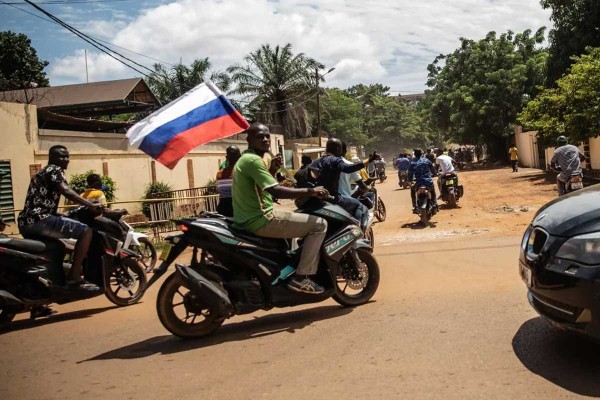-
_600_400_90_s_c1.jpg)
A decade after Euromaidan, Ukraine more fractured than ever
A full reckoning of what transpired during Euromaidan requires one to look at both internal and external factors, namely the divisions that existed within Ukrainian society, the peculiar ideology of Ukraine’s pro-European liberal intelligentsia, and the manner in which Ukraine became a battleground for competing geopolitical interests.
-

Shock therapy and Russia’s fatal turn
There are events that at the time seem to portend one thing but years later take on a very different hue. So it is with the dramatic political crisis that erupted in Russia 30 years ago this week, a crisis that ended with tanks of the Russian army blasting the country’s parliament, the Supreme Soviet, into submission.
-

Nagorno-Karabakh and the failure of Armenia’s ‘colour revolution’
There was very little to celebrate during this year’s Armenia Independence Day. Just one day earlier, authorities of the region of Nagorno-Karabakh capitulated to Azerbaijan following a brief offensive by the Azerbaijani military. The future of the region’s Armenian population remains uncertain and dreams of an Armenian Karabakh seem to be permanently shattered.
-

What the life and death of Yevgeny Prigozhin tells us about modern Russia
The Kremlin has no doubt learnt its lesson, and it is unlikely that it will ever again allow an individual to build a private army that can seriously threaten it. In this respect, while fitting a wider pattern, Yevgeny Prigozhin will probably prove to be a unique figure, destined to fascinate historians for centuries to come.
-

Ukraine and the pitfalls of foreign aid
If Western states want to produce better results in Ukraine than they did in Afghanistan, they will have to think a lot more intelligently about what sorts of aid they give and how they deliver it. Simply put, giving money away in large quantities tends to produce perverse incentives that cause people to behave in ways that engender negative results.
-

Russian liberalism’s false dawn
Konstantin Bogomolov recently published an article denouncing his one-time ideological allies in Russia’s liberal intelligentsia for their attitude towards the Russian people and the war in Ukraine. Bogomolov was out to provoke, yet beneath its insulting rhetoric, his article contained a germ of truth about the prospects for Russia ever turning into a liberal democratic state.
-

Belgorod raid: Why are Russian neo-Nazis fighting Putin?
The attacks on Belgorod provide some tactical advantages to Ukraine. On the other hand, they enable the Russian authorities to paint Ukraine as a “terrorist state” and strengthen Moscow’s propaganda narrative that Kyiv is in league with neo-Nazis. Rather than weakening support in Russia for the war, these attacks may therefore have the opposite effect.
-

Russia and the emergence of the post-Western world
Globally, the numbers pro- and anti-Russia are roughly even, but the tide seems to be drifting slightly in favour of the former. Russian foreign policy vis-à-vis the West is in tatters. Elsewhere, however, its diplomacy is proving quite effective. It is a fact with which the West sooner or later is going to have to come to terms.
-

How Western sanctions drove Belarus closer to Moscow
A case could be made that what is wrong with much of contemporary Western foreign policy is that it’s so concerned about deontology that it’s lost all track of consequences. Full of good intent, determined to do what it is “right” by promoting democracy and human rights, we embark on policies that fail utterly to do any good and more generally do a lot of harm.
-

Don’t despair: the world order is changing, but it is not collapsing
The war in Ukraine will end. Unfortunately, much more blood will be shed before that happens. But, as things currently stand, this local catastrophe should not be taken as an indication of a more general crisis. So far it isn’t, and most of the world is showing no inclination to do anything that might make it so. For that at least, we should be thankful.



